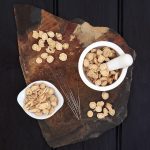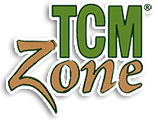Microbiome and Chinese Medicine: Elevating Gut-Health Strategies with Advanced Formulas and Acupuncture Points

By Xiyuan “Alex” Qiu, L.Ac.
Embarking on the journey of gut health, the intersection of ancient Chinese wisdom and modern microbiome science takes center stage. The gut microbiome, a thriving ecosystem of microorganisms, plays a pivotal role in our overall well-being. Traditional Chinese Medicine (TCM), deeply rooted in holistic principles, offers advanced herbal formulas and acupuncture points that delve into the intricacies of gut health. In this exploration, we will venture beyond the basics, unraveling the sophisticated strategies that weave TCM expertise with cutting-edge research.
Deciphering the Microbiome: A Window into Advanced Insights
Beyond its role in digestion, the gut microbiome, as elucidated by recent studies (Sonnenburg & Sonnenburg, 2019), orchestrates a symphony influencing metabolism, immunity, and mental health. TCM’s holistic lens adds layers to this understanding, framing the gut as an integral part of the body’s energy system.
TCM Mastery: Unveiling the Dynamics of Spleen Qi
Within TCM, the gut is not merely a physical entity but a focal point of energy flow. The Spleen, as a crucial player in TCM dynamics, governs digestion and nutrient absorption. Advanced practitioners delve into specific facets of Spleen Qi, exploring its transformative role in the body’s intricate balance.
Advanced Herbal Alchemy: Precision in Microbiome Modulation

Additionally, a formulation combining Bai Zhu (Atractylodes), Fu Ling (Poria), and Shen Qu (Massa Fermentata) can be strategically crafted. Bai Zhu strengthens the Spleen, Fu Ling drains dampness, and Shen Qu aids digestion, collectively addressing Spleen Qi deficiency and promoting a balanced microbiome. Shen Ling Bai Zhu San (T164) and Gui Pi Tang (T65) are commonly used formulas due to their powerful combination of the above herbs.
Acupuncture Precision: Navigating Beyond ST36 and SP6
While ST36 and SP6 remain foundational, advanced acupuncture strategies extend to intricate point combinations. The Ling Gui Ba Fa method (Hammer, 2016) offers a systemic approach, incorporating specific points along divergent meridians. Ren 12 (Zhongwan) and Stomach 25 (Tianshu) target the Spleen and Stomach, fortifying digestive functions. Introducing Ahshi points along the abdomen enhances the precision of treatment, addressing localized imbalances.
Case Studies: Merging TCM Expertise with Modern Insights
Real-world cases highlight the efficacy of advanced TCM interventions. In a study by Wu et al. (2018), a patient with complex digestive issues experienced significant improvement through a tailored protocol combining Astragalus, Codonopsis, Bai Zhu, Fu Ling, and Shen Qu. The Ling Gui Ba Fa acupuncture method reinforced the herbal treatment, showcasing the synergy between TCM principles and modern research.
Intersecting Wisdom: TCM and Modern Microbiome Research
The integration of TCM into modern microbiome research unveils a synergy that transcends time. Rigorous scientific studies, such as the meta-analysis by Zhao et al. (2022) on the impact of Astragalus on gut microbiota, validate the profound effects of TCM herbal interventions.
In the convergence of ancient wisdom and modern insights, advanced TCM practitioners navigate the microbiome with expertise. Precision in herbal formulations, intricate acupuncture strategies, and seamless integration of TCM wisdom with contemporary research herald a new era in the quest for optimal health. As we traverse the complexities, the marriage of traditional and modern insights unfolds, promising a tapestry of interconnected well-being.
References:
- Sonnenburg, J. L., & Sonnenburg, E. D. (2019). The ancestral and industrialized gut microbiota and implications for human health. Nature Reviews Microbiology, 17(6), 383-390.
- Li, L., Zhao, X., Zhu, X., & Hao, W. (2020). Astragalus membranaceus – A review of its protection against intestinal inflammation in ulcerative colitis. Journal of Ethnopharmacology, 246, 112211.
- Chen, J., Li, W., Yao, H., Xu, J., & Wu, J. (2021). Codonopsis pilosula polysaccharides ameliorate TNBS-induced colitis by promoting gut microbial Akkermansia muciniphila growth and modulating gut microbiota structure. International Journal of Biological Macromolecules, 169, 83-95.
- Hammer, L. (2016). Ling Gui Ba Fa: Twelve-Rule Eight-Form. Singing Dragon.
- Wu, X., Qian, Y., Zhang, L., & Xu, S. (2018). Clinical observation on the treatment of functional dyspepsia by traditional Chinese medicine based on syndrome differentiation. Journal of Traditional Chinese Medicine, 38(3), 394-399.
- Zhao, L., Wang, Y., Zhang, C., & Gao, L. (2022). Astragalus polysaccharide alleviates dextran sulfate sodium-induced colitis through enriching Akkermansia muciniphila to regulate gut microbiota imbalance. International Immunopharmacology, 104, 108353.

